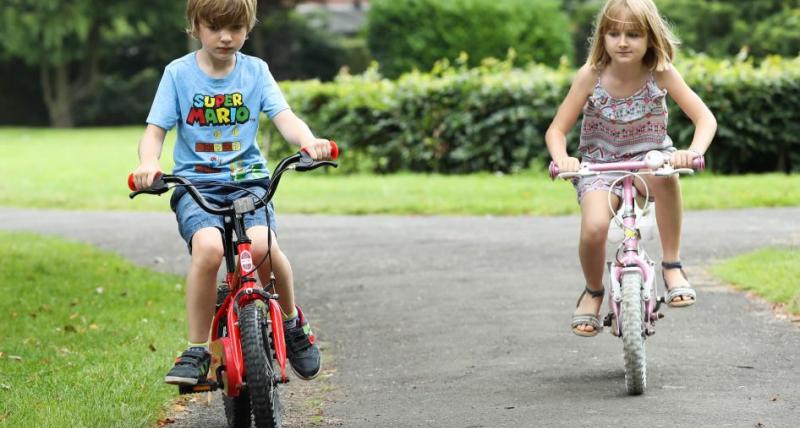
Walking and cycling to school is on the rise in North Tyneside.
It’s thanks to North Tyneside Council’s Go Smarter programme which works with schools to hold events such as car-free days and assemblies.
The scheme also involves school children in identifying improvements to local streets which make it easier to cycle, walk and ‘park and stride’.
As a result 26 schools in the borough have benefited from improvements including new crossings, traffic calming ‘raised tables’ and bollards to prevent pavement parking and keep junctions clear so children can move around more safely.
Work to install a Toucan crossing, to be used by pedestrians and cyclists, on Hillheads Road near Marden Bridge Middle School in Whitley Bay has this week been completed.
According to a new Go Smarter report, seven of the schools to benefit from the measures were among the top 10 where levels of sustainable travel have increased.
The report also reveals that in 2018, the first full year of the programme, Go Smarter has helped one school cut car journeys by more than 15 per cent.
More than 71 per cent of pupils at Cullercoats Primary School travelled sustainably (walked, cycled, scooted etc.) in 2018/19 compared with less than 56 per cent in 2017/18.
Cllr Carl Johnson, cabinet member for Environment and Transport, said: “It’s fantastic to see the success that our Go Smarter project has had in its first full year with more children cycling or walking to school as well as a number of improvements on nearby streets.
“As a council we are committed to creating clean, green, safe and sustainable environments which make it natural for children to walk, cycle or scoot to school rather than being driven in the car.
“This has many benefits for young people by encouraging them to be active and healthy. Not having cars clustered around school gates makes for a better local environment and helps improve air quality for everyone.”
The Go Smarter scheme, delivered for the council by its partner Capita, aims to reduce the number of vehicles on streets near schools and encourage more active and sustainable travel.
The team works with schools to identify potential improvements to the walking and cycling infrastructure.
Sustainable travel initiatives are also held, including car-free days and road closure events.
It is hoped that journeys to school in the borough will increase from less than 60 per cent in 2017 to 75 per cent by September 2020.
The programme started in 2017 and the team has since engaged with 39 schools, with 26 benefitting from nearby infrastructure improvements.
Early indications are that improved infrastructure, as well as behaviour change activity, has a positive impact on active travel.
For the Go Smarter in North Tyneside Annual Report 2018, search for ‘Go Smarter’.
